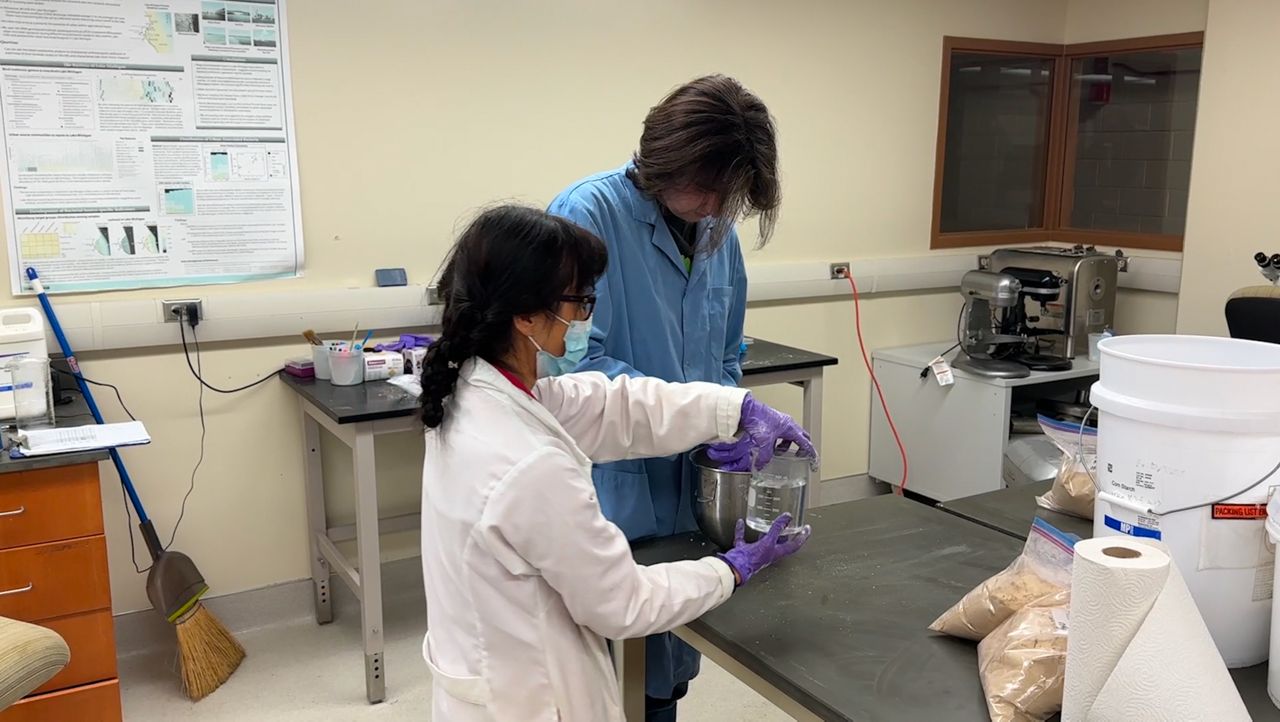
MILWAUKEE — Researchers at the University of Wisconsin-Milwaukee School of Freshwater Sciences are looking at black soldier fly oil as a way to improve fish nutrition.
The research, which is intended to help out fish farmers, is funded by the Wisconsin Sea Grant.
Alex Gregory studies aquaculture and nutrition for his PhD program. Gregory said typically, corn oil is used to make fish food.
“We are testing to see if this black soldier fly oil can supplement this corn oil because black soldier fly oil has a good healthy ratio of those fatty acids that we need as well as it is cheap,” said Gregory.
Since black soldier fly oil comes out as a solid, Gregory adds menhaden (fish) oil to mix it into a liquid. After that, he combines it with multiple starches.
The goal is to see if this type of insect oil can be used as the primary ingredient for fish food.
Gregory said he wanted to be a part of this research to make a difference for fish farmers.
“Fish food is extremely expensive,” said Gregory. “It’s like 60% of a business, so knowing that, I figure I could make the most difference, staying in this lab, continuing my work here.”
Dong Fang Deng is a professor that specializes in nutrition at the School of Freshwater Sciences. She said black soldier fly oil can also be produced using food waste. That makes it easy to recycle.
Deng said fish nutrition is also important because it can help maintain population levels of certain species of fish like yellow perch.
“Friday fried fish, definitely. Traditionally, yellow perch is used but now if you go to the restaurant, you can hardly find yellow perch on the menu for the Friday fried fish. They use other fish, so not only is it economically and environmentally important but also culturally important,” said Deng.
Working with fish nutrition has helped Gregory develop a new passion.
“I would like to still keep within the freshwater species,” said Gregory. “There is just a lot already done for the marine side of things, so I would like to continue my work with fresh water.”
Gregory said he also hopes to one day teach others what he has learned to help foster growth in the field of freshwater sciences.
